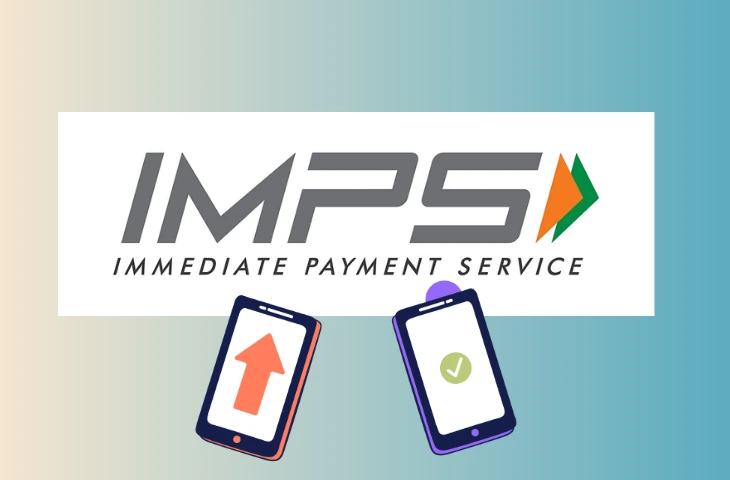IMPS, or Immediate Payment Service, is a real-time interbank electronic fund transfer system in India. It allows customers to transfer money instantly between bank accounts, anytime and anywhere. Launched by the National Payments Corporation of India (NPCI), IMPS works 24/7, including weekends and holidays. Its instant and secure transfer system has made it a popular choice for individuals, businesses, and digital payment users, especially for small-value and urgent transactions.
What is IMPS?
IMPS is a digital payment service that enables instant fund transfer between bank accounts across India. Unlike NEFT or RTGS, which work in specific time slots or banking hours, IMPS is available round the clock. It can be accessed via mobile banking apps, internet banking, ATMs, and SMS. The system is fast, safe, and regulated by the RBI, making it a reliable choice for quick transactions. IMPS is particularly useful for urgent payments, utility bills, or sending money to family and friends at any time.
Key Features of IMPS
IMPS offers several features that make it a preferred choice for instant payments. It provides flexibility, security, and speed, allowing customers to complete transactions without visiting a bank branch. The system supports multiple platforms, ensuring accessibility for all users.
- Instant Transfers: Money reaches the beneficiary’s account within seconds.
- 24/7 Availability: Works any time, including holidays and weekends.
- Multi-Platform Access: Transactions can be made via mobile apps, internet banking, ATMs, and SMS.
- Secure Transactions: End-to-end encryption ensures safety of funds.
- Flexible Methods: Money can be sent using MMID with mobile number, account number with IFSC, or Aadhaar number.
How IMPS Works?
IMPS allows fund transfers through three main methods, making it easy and versatile for users. Transactions are completed almost instantly, and confirmation messages are sent to both sender and recipient for transparency.
- Mobile Number and MMID: Both sender and receiver must have MMIDs from their banks.
- Account Number and IFSC: Direct transfer using the beneficiary’s account number and IFSC code.
- Aadhaar Number: Transfer using the recipient’s Aadhaar number linked to their bank account.
Advantages of IMPS
IMPS offers several benefits that make it an essential digital banking tool. It supports fast, convenient, and low-cost transactions, encouraging cashless payments across India.
- Immediate Fund Transfer: Ideal for urgent and emergency payments.
- Convenient Access: Send money anytime, anywhere without visiting a bank.
- Cost-Effective: Lower fees compared to traditional fund transfer methods.
- Promotes Digital Payments: Encourages cashless economy and financial inclusion.
- Multi-Channel Support: Available on mobile, internet banking, ATMs, and SMS.
IMPS vs NEFT vs RTGS
Each of these fund transfer methods serves a specific purpose. IMPS is best for urgent and small-value transactions because it works instantly at any time. NEFT is suitable for non-urgent payments and can handle small or moderate amounts during banking hours. RTGS is ideal for high-value transfers, ensuring real-time settlement but only during bank working hours. By understanding these differences, users can choose the method that best fits their needs.
| Feature | IMPS | NEFT | RTGS |
| Transfer Time | Instant | Batch-wise, 30–60 mins approx | Real-time during banking hours |
| Availability | 24/7, including holidays | Only during bank working hours | Only during bank working hours |
| Minimum Transfer | Rs. 1 | Rs. 1 | Rs. 2 lakh |
| Maximum Transfer | Bank-defined limits | Bank-defined limits | No upper limit |
| Channels | Mobile, Internet, ATM | Internet, Branch | Internet, Branch |
FAQs
Q1: What is IMPS and how does it work?
A1: IMPS (Immediate Payment Service) is a real-time interbank fund transfer system in India. It allows customers to send money instantly via mobile banking, internet banking, ATMs, or SMS using MMID, account number with IFSC, or Aadhaar number.
Q2: What are the main advantages of using IMPS?
A2: IMPS is instant, available 24/7, cost-effective, and secure. It supports multiple platforms and encourages cashless payments, making it ideal for urgent or small-value transactions.
Q3: How is IMPS different from NEFT and RTGS?
A3: IMPS is instant and works round-the-clock, NEFT operates in batches during banking hours, and RTGS is for large-value transactions but only during working hours. IMPS is best for urgent transfers.
Q4: Can I use IMPS for small and large transactions?
A4: Yes, IMPS allows small-value and medium-value transfers within bank-defined limits. For very large transfers, RTGS is usually preferred.
Q5: Is IMPS safe for digital transactions?
A5: Yes, IMPS transactions are secure with end-to-end encryption. Users receive confirmation messages for every transfer, reducing the risk of errors or fraud.
- NABARD Development Assistant Previous Year Papers PDF 2026
- NABARD DA Vacancy 2026, State and Category Wise
- How to prepare for the NABARD Development Assistant Exam 2026?
- Download Previous Year Question Paper PDF: SBI, IBPS, IBPS RRB Exams
- Economic Survey 2026 Release, Key Highlights, and Significance
- Nainital Bank PO Result 2025-26 Out, Check Download Link
Hi, I’m Tripti, a senior content writer at Oliveboard, where I manage blog content along with community engagement across platforms like Telegram and WhatsApp. With 3+ years of experience in content and SEO optimization related to banking exams, I have led content for popular exams like SSC, banking, railways, and state exams.
